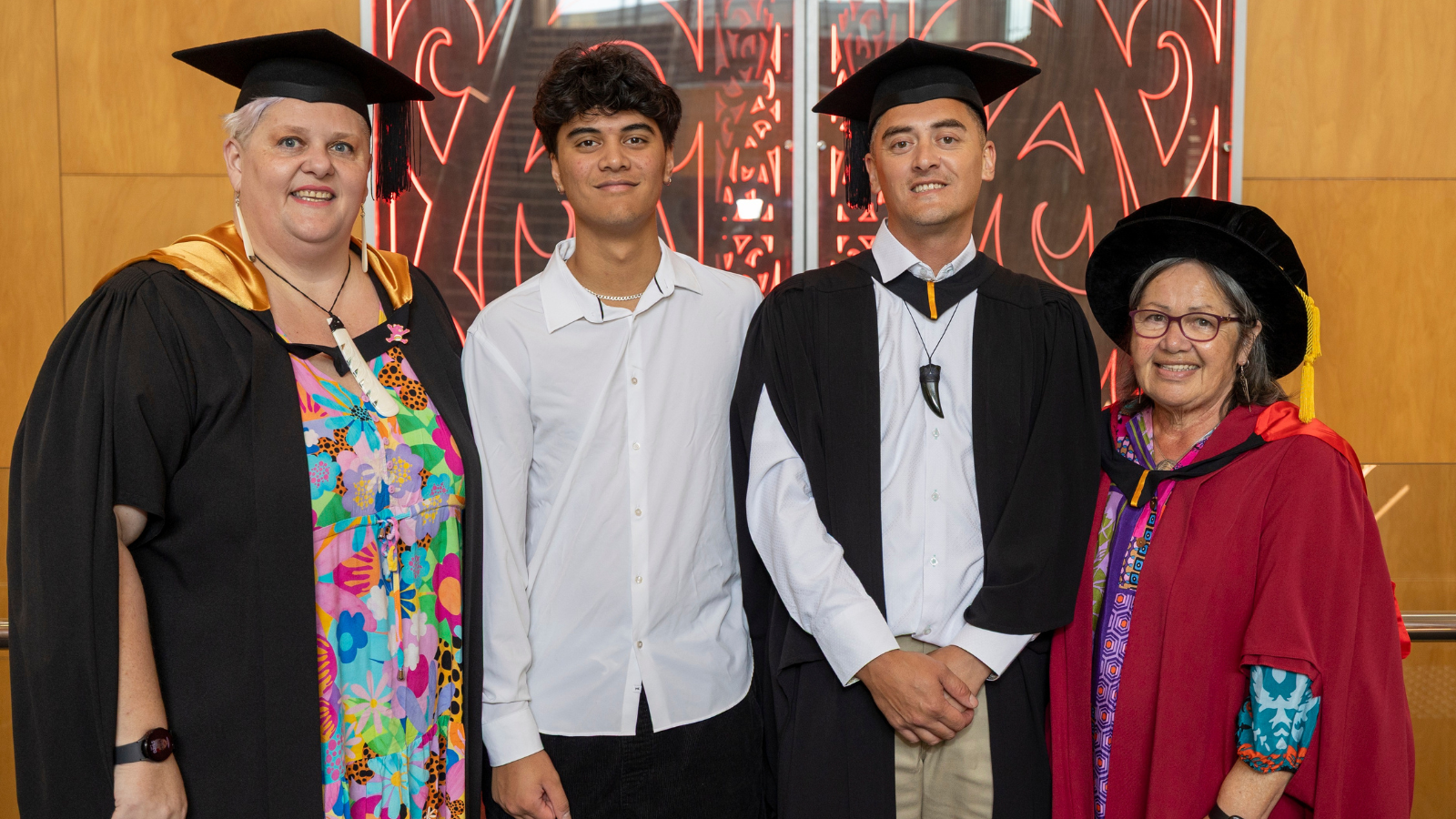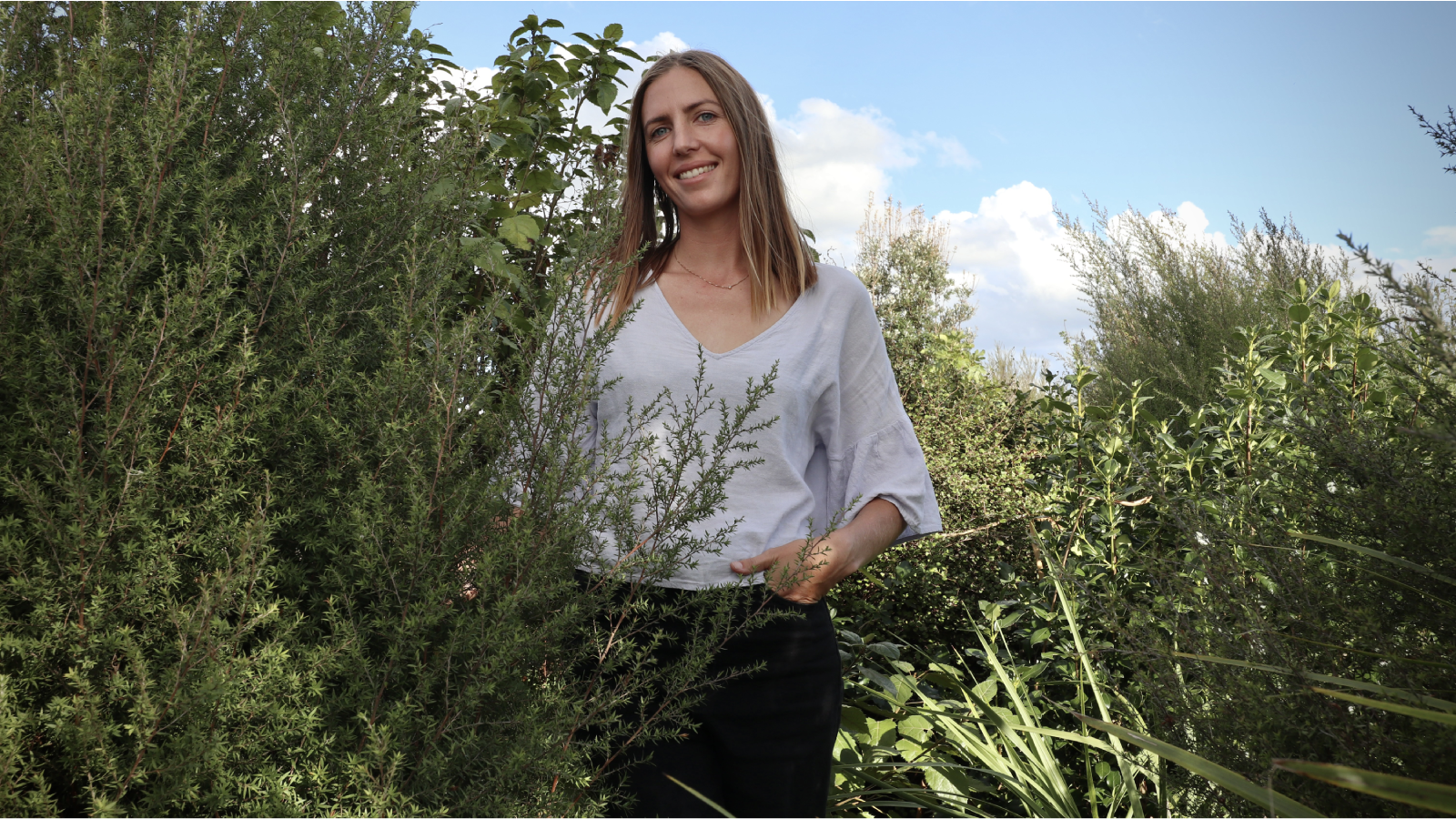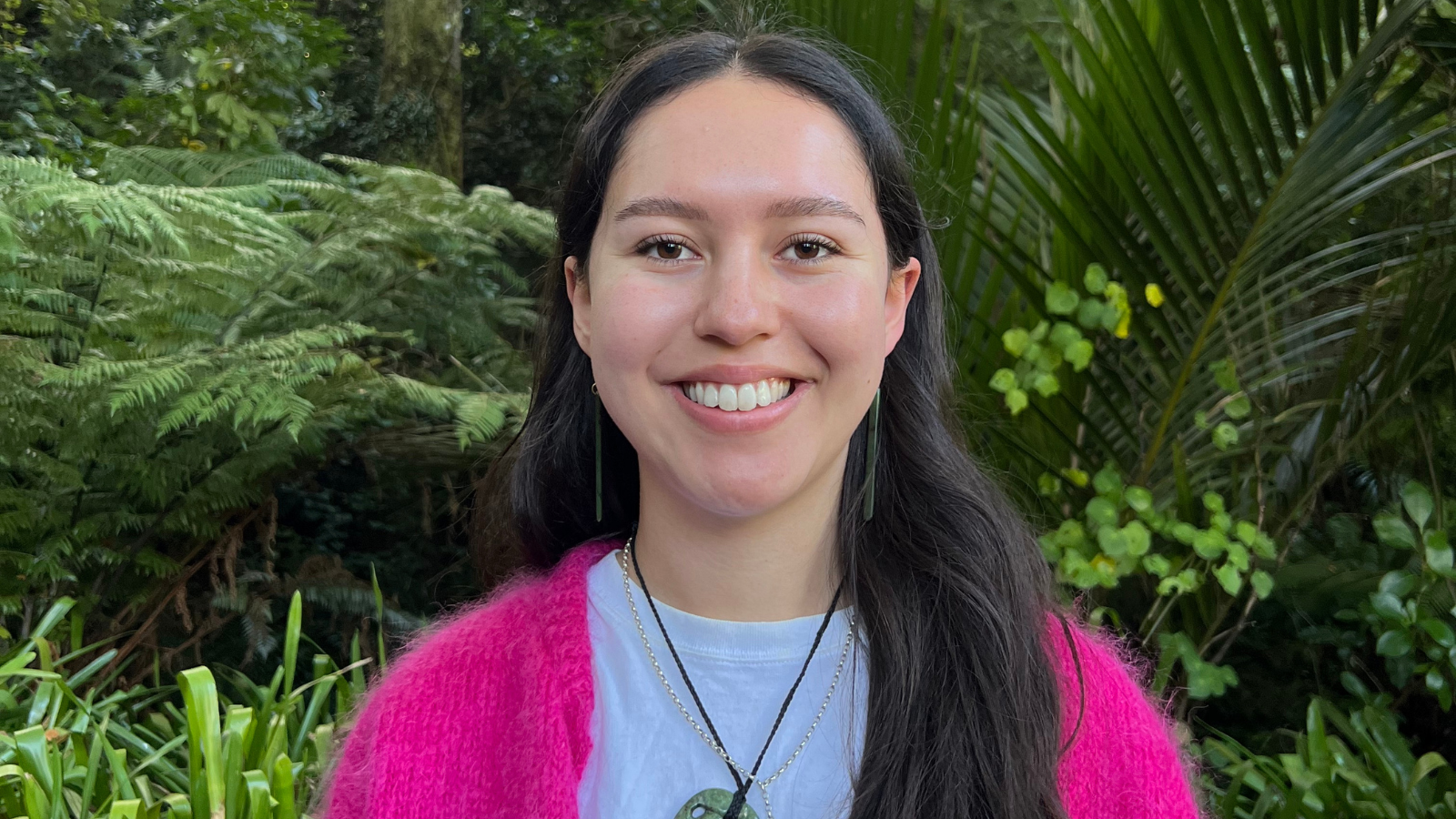The University of Waikato signed a Memorandum of Understanding (MoU) yesterday with three Waikato-based Primary Health Organisations (PHOs) as a step forward in their collective effort to tackle New Zealand’s health workforce shortages.
The agreement is set to drive collaboration in health education between the University, Pinnacle Incorporated, Hauraki PHO and National Hauora Coalition, drawing on each party’s expertise in teaching, research and innovation in primary care.
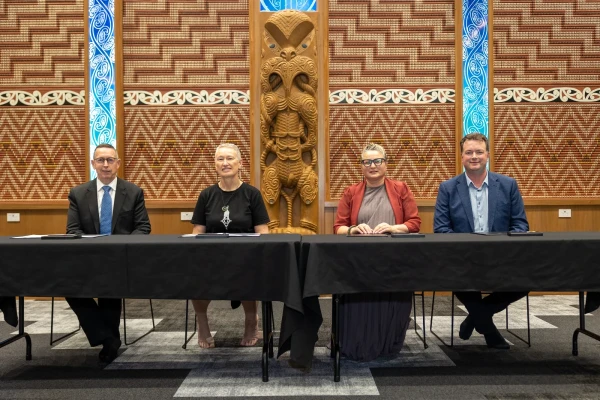
L-R: Professor Neil Quigley, Vice-Chancellor of the University of Waikato, Taima Campbell, CEO of Hauraki PHO, Dr Rachel Brown, CEO of National Hauora Coalition, Justin Butcher, CEO of Pinnacle
It will see the organisations create a regional network of training facilities to support interprofessional clinical placements across a range of primary care health professions.
Professor Jo Lane, Pro Vice-Chancellor of the University’s Division of Health, says this approach to delivering health education lays a platform for the organisations to support a strong and sustainable primary care workforce.
“Interprofessional clinical placements, where students have the opportunity to work in multidisciplinary healthcare teams, are key to ensuring students are well-prepared to work in a modern health system.”
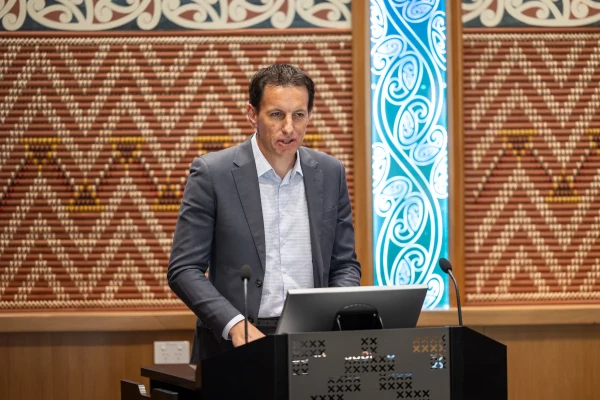
Professor Jo Lane, Pro Vice-Chancellor of the University of Waikato Division of Health
Professor Lane says the University looks forward to continuing to develop its relationships with the three PHOs as it works in partnership to address primary care workforce shortages both regionally and nationally.
Pinnacle Incorporated is the parent group of the Pinnacle Midlands Health Network, a PHO that oversees 84 general practices across Tairāwhiti, Taranaki, Rotorua, Taupō-Tūrangi, Thames-Coromandel and Waikato.
Pinnacle Chief Executive Justin Butcher says he is pleased to see the University taking an innovative approach to health education, with a clear focus on addressing the biggest workforce needs and an emphasis on interprofessional practice.
“We recognise modern primary care is increasingly delivered in a team-based approach, so it makes sense that as students, they would learn together too,” he says.
Hauraki PHO supports the delivery of primary healthcare services to whānau in the Hauraki and Waikato regions. It is partnered with five primary health providers, three with multiple clinics, and covers an enrolled population of almost 85,000.
Hauraki PHO CEO Taima Campbell says, “Many of our whānau with the highest needs are living in rural communities. We are looking forward to more Māori health graduates joining the primary healthcare workforce in Hauraki and the wider region to improve health outcomes for them.”
National Hauora Coalition is a Māori-led charitable entity with a national PHO containing over 60 GP practices.
National Hauora Coalition CEO Dr Rachel Brown says they are proud to partner with the University on this vital initiative to help facilitate a workforce pipeline and maintain long-term sustainability.
“Interprofessional practice plays an important role in student education, giving tauira a sense of belonging and providing learning experiences within a range of primary care environments.
“To achieve equitable healthcare in Aotearoa we must look to the future — our tauira are a crucial part of that. He waka eke noa, we are all in this together,” she says.
Professor Lane says the University is also working with the three organisations to build a nationally recognised partnership in primary care research that will lead to better and fairer outcomes, particularly for those living in rural and regional communities.
“With an ageing population and increasing demand for primary care services, it’s clear that how primary care is delivered in the future might differ from the past. We’re taking an evidence-based approach to consider how changes in practice or the adoption of new technologies might enable more equitable health outcomes.”
